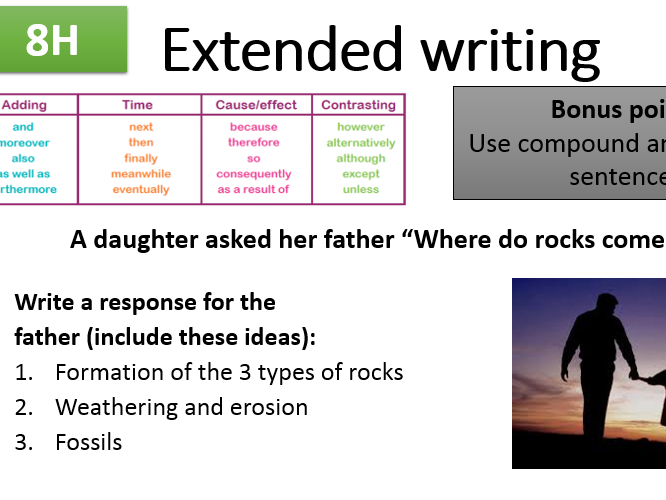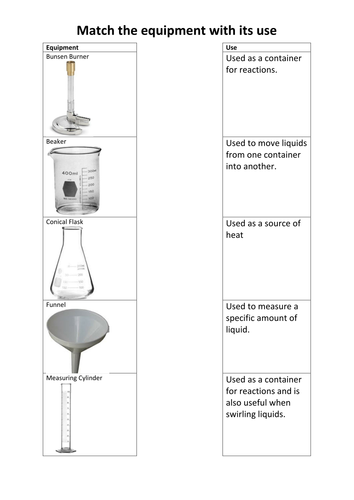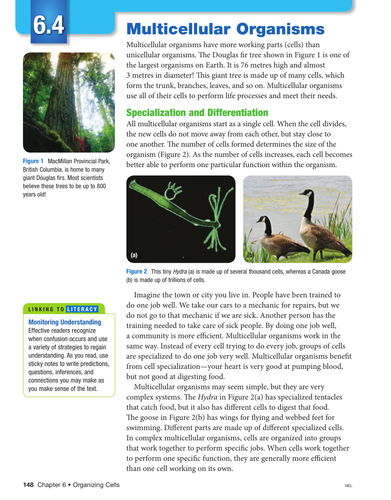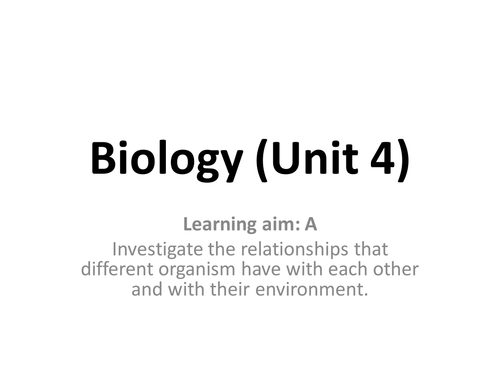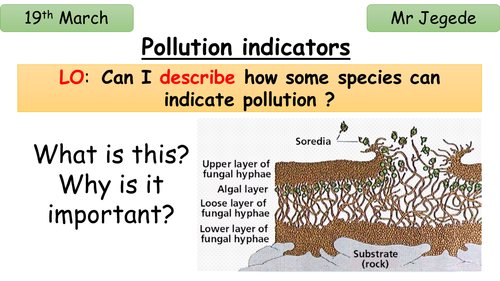243Uploads
112k+Views
55k+Downloads
Biology

B2.2 Growth and differentiation
AQA GCSE Sciences (9-1)
Biology: B2 Cell division
Lesson 2: B2.2 Growth and differentiation
Based on the Kerboodle Resources
The AQA Kerboodle worksheet are not included so as to be acting within the TES code of conduct.
Keyword: Differentiate, Stem cell, Cloning, Adult stem cell
Bundle

B17 Organising an ecosystem
Save £2 (33%)
Includes:
B17.1 Feeding relationships
B17.2 Materials cycling
B17.3 The Carbon Cycle
Please note: I had to remove the AQA worksheets so as to abide by TES’s code of conduct. Only my worksheets and PPT are included.

B14.4 Genetic engineering
AQA GCSE Sciences (9-1)
Biology: B14 Variation and evolution
Lesson 4: B14.4 Genetic engineering
Based on the Kerboodle Resources
The AQA Kerboodle worksheet are not included so as to be acting within the TES code of conduct.
Keywords: Plasmid, Enzymes

B11.1 Principles of hormonal control
AQA GCSE Sciences (9-1)
Biology: B11 Hormonal coordination
Lesson 1: B11.1 Principles of hormonal control
Based on the Kerboodle Resources
The AQA Kerboodle worksheet are not included so as to be acting within the TES code of conduct.
Keywords: Endocrine system, Hormones, Insulin, Adrenaline, ADH

KS3 Science Complete Extended Writing Task (Yr7-8)
Best used just before or after finishing a topic - an ideal activity for deep marking.
Each slide contains a set of connective and also prompt ideas.
Topics included:
* Adaptation, Neutralisation, Particle theory, Detecting sound, Puberty, Drugs and health, Fossil fuels.
* Respiration, Rock cycle, Payback-time, Digestion, Diffusion, Acidification of forests, Pollination, Earth and space

B8.2 The rate of photosynthesis
AQA GCSE Sciences (9-1)
Biology: B8 Photosynthesis
Lesson 2: B8.2 The rate of photosynthesis
Based on the Kerboodle Resources
The AQA Kerboodle worksheet are not included so as to be acting within the TES code of conduct.
Keywords: Limiting factor, Denatured, Enzymes

Safety and Scientific Equipment (Introduction lesson 3/4)
Designed to be the third lessons for Year 7s (3/4).
Learning outcomes:
(*) Describe the use of different lab equipment.
(*) Identify the appropriate lab equipment for an investigation.
(*) Identify safety issues in an unsafe environment.
Students will learn the common equipment they will encounter in the lab and their function.
They will also learn how to measure liquids using equipment that form a meniscus.
There are also safety rules and also how to light a Bunsen Burner

B3.7 Making digestion efficient
AQA GCSE Sciences (9-1)
Biology: B3 Organisation and the digestive system
Lesson 7: B3.7 Making digestion efficient
Based on the Kerboodle Resources
The AQA Kerboodle worksheet are not included so as to be acting within the TES code of conduct.
Keywords, Bile, Emulsify

B17.2 Materials cycling
AQA GCSE Sciences (9-1)
Biology: B17 Organising an ecosystem
Lesson 2: B17.2 Materials cycling
Based on the Kerboodle Resources
The AQA Kerboodle worksheet are not included so as to be acting within the TES code of conduct.
Keywords: Microbe, Decay

B14.1 Variation
AQA GCSE Sciences (9-1)
Biology: B14 Variation and evolution
Lesson 1: B14.1 Variation
Based on the Kerboodle Resources
The AQA Kerboodle worksheet are not included so as to be acting within the TES code of conduct.
Keywords: Gene, Chromosome

B16.3 Distribution and abundance
AQA GCSE Sciences (9-1)
Biology: B16 Adaptation and competition
Lesson 3: B16.3 Distribution and abundance
Based on the Kerboodle Resources
The AQA Kerboodle worksheet are not included so as to be acting within the TES code of conduct.
Keywords: Sample size, Mean, Mode, Range, Quadrat

B1.1 Observing cells
Kerboodle Activate (1)
Chapter 1: Cells
Lesson 1: B1.1 Observing cells
The Kerboodle worksheet are not included so as to be acting within the TES code of conduct.
Keywords: Organisms, Cells, Microscope, Observation, Slide, Magnification, Objective lens, Eye-piece lens

B1.3 Eukaryotic and prokaryotic cells
AQA GCSE Sciences (9-1)
Biology: B1 Cell structure and transport
Lesson 3: B1.3 Eukaryotic and prokaryotic cells
Based on the Kerboodle Resources
The AQA Kerboodle worksheet are not included so as to be acting within the TES code of conduct.
Keywords: Eukaryotic, Prokaryotic

B3.1 Tissues and organs
AQA GCSE Sciences (9-1)
Biology: B3 Organisation and the digestive system
Lesson 1: B3.1 Tissues and organs
Based on the Kerboodle Resources
The AQA Kerboodle worksheet are not included so as to be acting within the TES code of conduct.
Keywords: Tissue, Organs, Organ system

B3.3 Chemistry of food
AQA GCSE Sciences (9-1)
Biology: B3 Organisation and the digestive system
Lesson 3: B3.3 Chemistry of food
Based on the Kerboodle Resources
The AQA Kerboodle worksheet are not included so as to be acting within the TES code of conduct.
Keywords: Carbohydrates, Lipids, Fatty acids, Proteins, Amino acids, Denatured

B3.5 Factors affecting enzymes
AQA GCSE Sciences (9-1)
Biology: B3 Organisation and the digestive system
Lesson 5: B3.5 Factors affecting enzymes
Based on the Kerboodle Resources
The AQA Kerboodle worksheet are not included so as to be acting within the TES code of conduct.
Keywords: Enzyme activity, Denatured

B4.1 The Blood
AQA GCSE Sciences (9-1)
Biology: B4 Organising animals and plants
Lesson 1: B4.1 The Blood
Based on the Kerboodle Resources
The AQA Kerboodle worksheet are not included so as to be acting within the TES code of conduct.
Keywords: Plasma, Red blood cells, White blood cells, Platelets, Haemoglobin

History of Life
A stand alone lesson. Outcomes:\nState what causes replication,\nDescribe the similarities and differences between RNA/DNA,\nExplain how fat molecules allowed natural selection of RNA molecules.

NEW BTEC First Principles of Applied science
Coursework section. Before each task I'll give a brief introduction with some questions so they get use to the knowledge in the topic. These worksheets detail the scenarios and work that should be present in their coursework. Given to students at the start - may be good to also give them a due date for each task. It is probably best to have access to laptops/pcs. GOOD LUCK GUYS *LOVELY BTEC*!!!!!!!!!

Pollution indicators
Main activity will be pupils identifying different organisms in six ponds and using their keys to find the cleanest drinking water.





